#and so are the parallels between Henry and Will
Text
Mike's speech to Eleven in Stranger Things S4E9 holds so much more weight after watching the First Shadow in London.
He tells El: "I love you with your powers, without your powers. I love you for exactly who you are. You're my superhero. And ... I can't lose you."
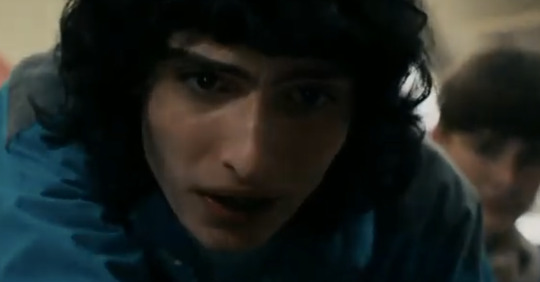
And it mirrors Eleven and Henry together so nicely.
Because we know Patty Newby thought of Henry Creel as her superhero - that was their thing and they constantly talked about him having super powers in the same way Max, Mike, Will and the Squad do with El. And Henry liked being Patty's superhero, and he felt loved for the first time in his life. He felt understood by someone for the first time in his life; by someone that also felt like an out-cast, and also felt like they didn't fit in and weren't "normal".
And we also know that Henry did lose Patty. Because Dr. Brenner isolated him away from her. He isolated him away from everyone and everything.
And he lost who he was because of that. And he became the weapon that Dr. Brenner wanted him to because of that.
If any part of the Henry Creel we meet in Stranger Things: the First Shadow is still there in Henry/Vecna/One, the realisation that Mike is Eleven's Patty must hurt him deeply.
They have so much to work with.
If Eleven finds out Mike loves Will, for example, then El will have to come to terms with losing the person that believed in her.
I'm interested to know what the Duffer Brothers might do with this in ST5.
Because we know Eleven experienced the same bullying that Henry did during her time in California. And we know that Will Byers has also been feeling isolated and alone his whole life, so maybe we'll see those similarities between Will and Henry start to creep into the story a lot more.
I'm excited. And I'm nervous.
#stranger things#henry creel#mike wheeler#mileven#eleven#stranger things the first shadow#st tfs#patty newby#millie bobby brown#finn wolfhard#byler#the first shadow is so good#and the parallels between Eleven and Henry are there#and so are the parallels between Henry and Will#the duffer brothers have so much to work with
31 notes
·
View notes
Text
Fantasy retelling of Northanger Abbey:
Innocent young Catherine Morland is overjoyed to have the chance to go to the King's City, leaving her quiet country town for a more diverse and magical metropolis.
Catherine loves reading fairy tales about the dramatic deeds of long-ago fae.
Henry Tilney is a trickster fairy prince who is jaded by a lifetime of dealing with the machinations of the fae courts. He gets amusement out of living among humans and laughing at their follies.
Catherine meets Henry and is immediately awed at his backstory and (metaphorically) enchanted by his charming personality.
For reasons unknown, Henry's father encourages Henry to romantically pursue Catherine. Henry half-heartedly goes along with it, because it's not a bad idea to stay in Dad's good graces.
And then he's shocked to find himself actually falling in love--because Catherine loves him and because she's genuinely innocent and good in a world where he thought such people didn't exist.
To everyone's surprise, Catherine gets an invite to stay at Henry's father's palace.
An actual enchanted fairy palace? How could Catherine say no?
As they're traveling there, Henry plays up all the old fairy tale tropes warning Catherine how to behave. He's joking (things haven't been like that for centuries) but Catherine still takes it to heart.
Catherine hears of the dramatic tale of the life and death of Henry's mother (perhaps a human? So Henry's actually only half-fae?). With her imagination primed by the stories she knows, Catherine starts to interpret faint "evidence" as proof that his mother's actually hidden away under a fate-worse-than-death curse, perhaps just waiting for a pure-of-heart maiden to come break the spell.
Henry catches Catherine during her quest and is amused and a bit offended. Do you know what you're saying? Maybe things like that could happen long ago and far away, but the fairies are Christianized now. Enchantments like that are far too brutal to consider.
She's right that his dad's a jerk, though.
Not long after this, Henry's dad sends Catherine away in disgrace. He had heard that Catherine was the Chosen One of a prophecy and wanted her to increase the power of his kingdom. He's shocked to learn it's not true (you mean humans can lie?), and in his anger he's harsh in sending her away.
Henry refuses to abandon Catherine and gets himself banished for refusing to give her up.
He shows up at her ordinary home and declares his love and they live happily ever after.
#northanger abbey#jane austen#i started thinking about the parallels between coming-of-age and portal fantasy stories#remembered my assertion that northanger abbey is a portal fantasy#and took it a step further with fairy prince henry tilney#this book is so great for fantasy aus because henry makes an excellent magical boyfriend
272 notes
·
View notes
Text
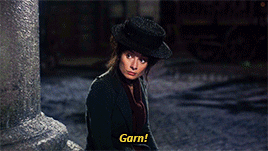
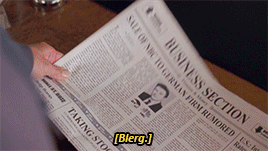
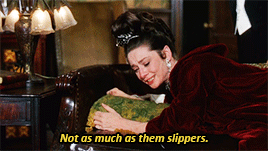
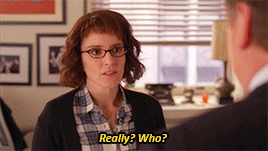

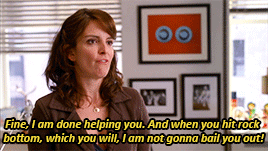
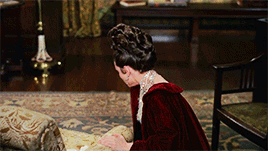
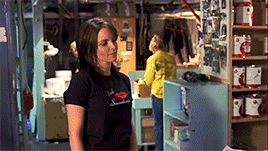
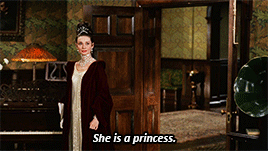

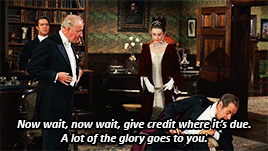
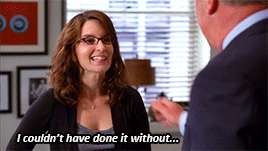
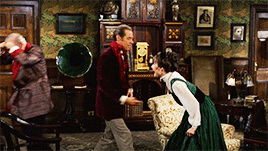
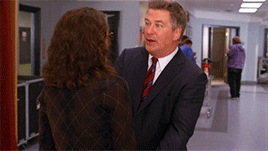
My Fair Lady (1964) // 30 Rock (2006)
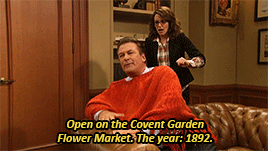
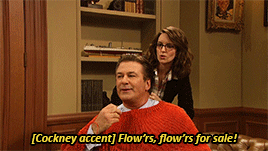
#my fair lady#30 rock#eliza doolittle#henry higgins#liz lemon#jack donaghy#audrey hepburn#rex harrison#tina fey#alec baldwin#i have a LOT to say about this but it's past my bedtime so just have this#i could make a bajillion more comparisons between them btw there's so much that this gifset doesn't even touch on#specifically when the mentor is like 'psssh I can get on fine without her' and then is on the verge of tears five minutes later#going 'WHERE'S MY LITTLE BUDDY'#'i need her here doing her dumb but endearing things in order for me to function as a human being'#musicals#ray.gif#parallels#another addition to the gifsets designed specifically for me collection
151 notes
·
View notes
Text
Glenn Close and Kian Stone, same person in different fonts
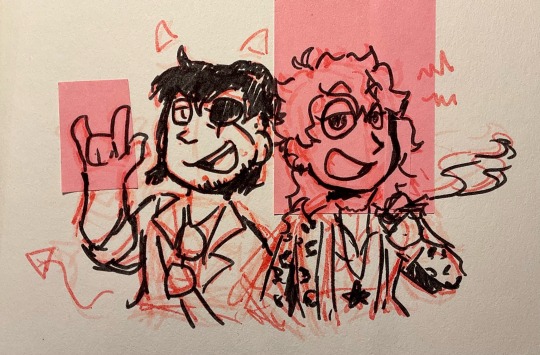
no but like theyre both phoney rockstars who love weed that get sort of revived like there is a surprising amount of similarities
also peter sqloint and henry oak chatting (theyre talking about rocks)

jrwi and dndads crossover requested by @hiigueslol :] (lmk if you want me to untag)
#dndads#dungeons and daddies#dndads fanart#glenn close#dndads glenn close#henry oak#jrwi#just roll with it#jrwi fanart#kian stone#jrwi kian#peter sqloint#jrwi peter#crossover#also imagine how chip would act around so many father figures LMAO#probably couldve drawn parallels between pd and the teens but i dont have the brain power rn#ALSO SORRY GLENN AND KIAN LOOK SO SHIT#im better than this i prommy
25 notes
·
View notes
Text
Culpeper had intimate access to the king and was well placed to provide Katherine with information about her husband's health and his ever fluctuating moods. More importantly, Culpeper could warn her of any indication that Henry was angry [...], could listen out for any gossip about her, and report on speculation that her husband was considering repudiating her in favour of Anne of Cleves. Throughout Katherine's queenship, this topic would surface time and again, to her consternation and grief.
Katherine Howard: The Tragic Story of Henry VIII’s Fifth Queen, Josephine Wilkinson
#an interesting parallel to AB...#i wonder if those underwrote both their fears#the possibility that their predecessor could be restored and them cast off#i mean with kh. she knew that was actually possible. since he'd done it before. so....#(not henry taking back a former wife but casting off his current for someone else...yeah?)#whereas anne knew he would always have the bond through their child and was competing with a much more significant and length shared histor#between henry and coa...#*shared history#and also had been with him in their shared project and at times living together for like.#six years prior to their marriage. so...
11 notes
·
View notes
Text

I wish I could reverse, reverse
And stop the hourglass
Because the earth is spinning ‘round the sun too fast.
#Reverse by Jhariah is such a song for them#I love the parallels you could make between the cartoon trio and these three. it makes me so violently ill#can you tell that I just read TIOL… yeah#Abby lambert#henry stein#joey drew#I need more fanart of those three ‼️‼️ they make me so sad‼️‼️#batdr#batim#bendy and the ink machine#bendy books#the illusion of living#tiol#batim henry#batim joey drew#the poses are kinda awkward but tbf I referenced them off of the original drawing Henry made blame him 🚶♂️
51 notes
·
View notes
Text
i just need. i just NEED. scott to be the key that solves everything. i need him to be there with henry. and i need the party to come back to him. i need them to remember/realize that scott was there when they were kids. mr scott clarke who solves all of their specific theoretical hypothetical questions so they can solve their problems and figure out what’s going on. i need him to be there to tell them about henry and make them realize they are Not Dealing With Henry. i need scott to clear henry’s name!!!
#im literally going insane he's TOTALLY THERE#they would NEVER FORGET ABOUT SCOTT!!!!#i say things#stranger things //#also i dont give this any real weight but like. it's fun to pick out moments that parallel one another thru the show#and a lot of them happen like. things that happen in s2 are mirrored in s4#or things that happen in s1 are mirrored in s3 but NOT directly mirrored in s2/4#like so some things that happened in s1 and 3 i'm like oh it'll happen in 5 too so we get 1 3 5#so im like. if in s1 scott helped them w the sensory deprivation tank thus allowing el to find barb and will#and if in s3 scott helped joyce figure out her magents#then in SEASON 5 he'll show up and HELP THEM with their HENRY PROBLEM#he will be the thing that really solidifies the distinction between henry and edward i can taste it#he will have a hand in it so help me god
15 notes
·
View notes
Text
I promise one day I’ll stop bringing up this screenshot but today is not that day because uhm.
Thinking about @madwheelerz’s manifestation theory and like. When this happens:
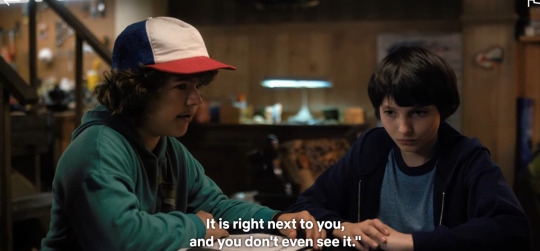
…they’re describing the Upside Down in terms of the Veil of Shadows. Which. Okay, cool.
Except generally, when they use D&D as a metaphor, they use actual things from D&D irl. The Demogorgon, the Mind Flayer, Vecna… all are real, actual things in irl D&D, even if they’re not exactly 1:1 like the things they (nominally) describe/foreshadow.
…but not the Veil of Shadows. The Veil of Shadows is not a thing. They made it up for the show. And they didn’t have to. Because in real D&D, Shadowfell exists. Described as “the toxic plane of darkness and power. It is the hidden place that hates the light. It is the frontier of worlds unknown”. It’s literally alternately called the Plane of Shadows.
But the Veil of Shadows? Sounds a hell of a lot like Shadowfell in description, but Shadowfell is never referenced as the Veil of Shadows.
And… Shadowfell is from 4e. The kids, especially in s1, are playing 1e. They should not know what Shadowfell is at all.
Idk I just find it interesting that so many of the D&D references are real, and to things they could at least know the name of because they really did show up by name in 1e. Except for the one describing the UD as a whole? Thus comparing the UD to something entirely made up?
Just… interesting.
#manifestation theory#also interesting that even if it WAS a real name for Shadowfell#Shadowfell itself is anachronistic#like#the boys won’t see 2e until 1989#which is why I really hope the time skip is to then because…#literally#that’s when the game changes#so *4e* is so far away as to be weird to reference#something something#the UD is paralleled both to something *made up by the writer/s* AND to something from the wrong time period#something something the UD *does* have funky time shit going on so…#yeah what if it IS also made up by the DM?#even though it LOOKS official/like something that’s always been there because the sheet Dustin reads from was clearly not made by Mike#unless he somehow convinced Nancy to let him use the school newspaper tech to put it together or maybe got Mr Clarke to help#something something Dustin says he wouldn’t be surprised if the UD predated the dinosaurs#but we have no real way to know or assume that#plus the UD didn’t even look like the Veil of Shadows or Shadowfell at all until sometime between Henry meeting the shadow & Will vanishing
51 notes
·
View notes
Note
Hell yeah, play lines! Trick or treat.
A set of lines for you because I can’t stop thinking about these two!
From Richard II:
King Richard: “Yield stinging nettles to mine enemies; and when they from thy bosom pluck a flower, guard it, I pray thee, with a lurking adder, whose double tongue may with a mortal touch throw death upon the sovereign’s enemies” (III.ii.18-22).
And from Henry IV Part 1:
Hotspur: “‘Tis dangerous to take a cold, to sleep, to drink, but I tell you, my lord fool, out of this nettle, danger, we pluck this flower, safety” (II.iii.8-10).
When I tell you I SCREAMED reading that line in Richard II! It almost reads like a curse that ends up falling on Hotspur who does indeed rebel against his sovereign—Henry IV now, not Richard II—even as he unknowingly echoes Richard’s exact phrasing! He makes his attempt to “pluck a flower” from danger, but it kills him with the “mortal touch” Richard threatens. Ultimately, Henry IV faces a similar fate, tortured by guilt until he dies prematurely of illness probably caused by stress. Thus ever did rebellion find rebuke…
#shakespeare#Richard II#1 henry iv#trick or treat asks#one of these days I’m gonna make a post about the linguistic parallels between Richard and Hotspur#it’s SO WEIRD#and I’m not sure what it MEANS but it comes up all the time#AHHHHH!!!!!
5 notes
·
View notes
Text
just to reiterate: if people dmtnt's writers, cough think ferryman will wouldn't be incredibly aware and concerned about some ghostly pirate hunter piece of shit refusing to die and killing people all over the seas then, erm, they're sorely mistaken
#/ it's... literally his area of influence#/ not to mention his concern for his pirate family and friends#/ because yes elizabeth and henry would obvs be piratey – did the writers not see elizabeth's incredible development over potc1–3??#/ there were many issues with dmtnt - elizabeth not speaking and wearing a corset; jack's character just kinda being shat on etc#/ and will's general lack of involvement when it actively impacts his job is one of them i mean wtf#/ will's heart is safely elsewhere if you want someone to destroy salazar then he's an immortal psychopomp of the seas???#/ ???????? idk it makes me so CROSS#/ henry and carina are two of the only blessings to come from dmtnt - and willabeth's ultimate reunion despite liz's silence and corset#/ i know he has a full-time role to carry out but his son is going ghosthunting??#/ literally all of will's altruism and love for his family#/ even the parallel of him saving his father that he hadn't seen for about 10yrs versus then helping his son who he's been absent from#/ being the father who chooses to be present over the life of piracy – despite him being cursed#/ to strike that distinction of choosing family between himself and bootstrap#/ my god they missed so much they could've done#ᵗʰᵃᵗ'ˢ ᶰᵒᵗ ᵍᵒᵒᵈ ᵉᶰᵒᵘᵍʰ | ooc#ᶰᵒᵇˡᵉ & ʰᵉʳᵒᶤᶜ | headcanon
21 notes
·
View notes
Text
formatting (my worstie)
#so much information. must i communicate it effectively#is it not enough to uploads giant word blocks that make absolutely zero sense ?#why should i explain myself. why can’t i just say that theoretically as a result of being part of the hivemind will has access to henry’s#memories with peter and you just get the implications#btw that isn’t what happened in dracula however im not gonna throw around the idea of reincarnation when there’s a solution that can be#presented in canon through an established mental link paralleled between will and mina#like bro . what the freak ever
7 notes
·
View notes
Text
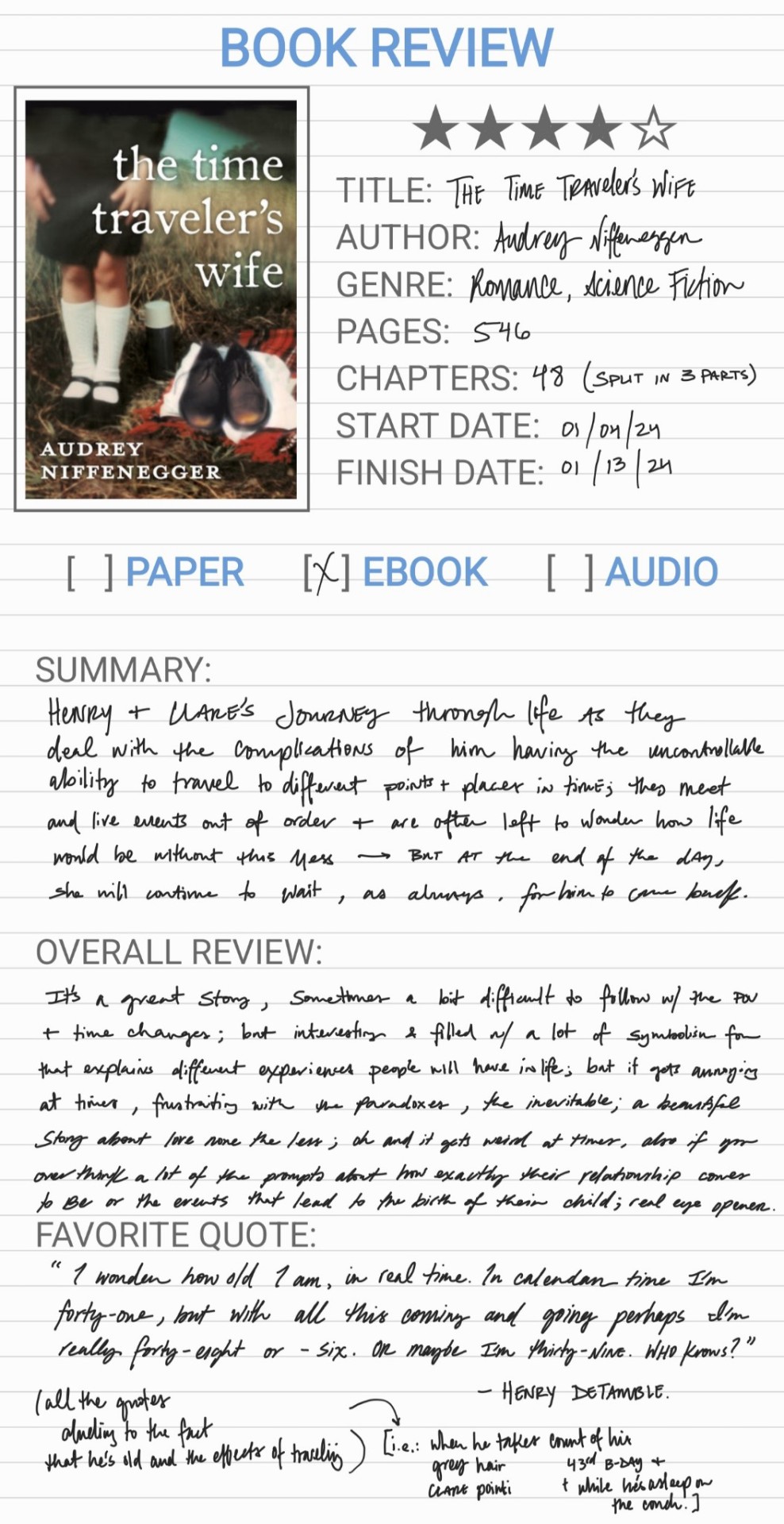
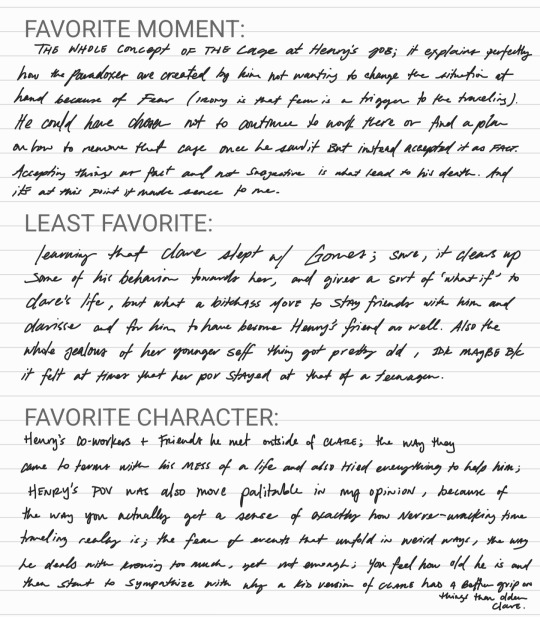
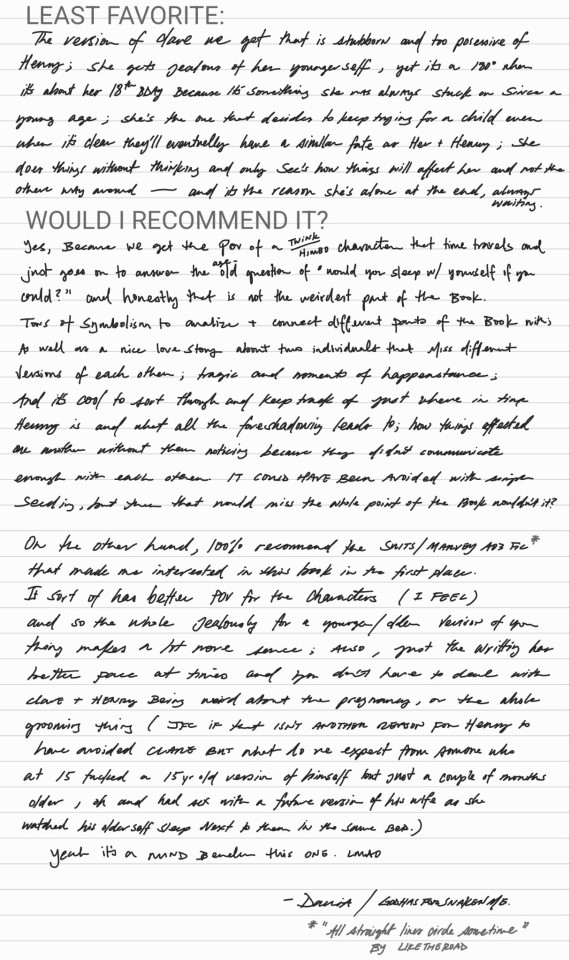
BOOK REVIEW 📖
Last year I kept track of the series & films I watched; this year I've decided to keep track of whatever books I read! So this one is for the month of January – I'll share these sometime after the month is over, or if I read more than one book during the month, I will do their reviews as soon as I finish the book :)
#ben picks up reading again#dania rambles about shit#should note that this is not spoiler free (don't give much context but still)#i would read it again just to catch all the parallels and symbolism#chose to read this on libby bc of the option to highlight and keep notes in one spot bc jfc I would've annotated tf out of a physical copy#doing this completely from my phone and made my own little template because I couldn't find any good ones for free#what else ummmm oh right this is like a basic answer/question and I ramble off topic but still within some type of margin#read that fanfic I recommend really since I feel like it's better written aka maybe I just like it more bc it has a happy ending#and it includes all the same problems that the characters of the original book went through (for the most part)#anyway 4/5 stars and not 5 bc like I got tired of clare's pov bc it felt like there was no different between#the varying ages we get once we reach her at like 12 and up#henry also affected this bc like he's likable but so stupid and shouldve studied paradoxes or something to solve his problems#again rambling it needs a fix it but blah blah not really their suffering is a main point of the book :)#yeah so structured like a traditional one but I focus on not so traditional aspects bc I have a way of analyzing things#as if I have an essay to write on it lmaooooo#these are handwritten bc I like to keep track in case it worsens due to my cubital tunnel affected wrist#(im a righty; lefty on the other hand has carpal tunnel but that only affects when I do hand on projects like pottery or painting)#I'm giving free trivia/lore about myself here lol
1 note
·
View note
Text
Hi. I've started writing a semi-weekly TB Newsletter, if you're interested in that kind of thing. Here's the second letter--about public-private partnerships, leprosy, and my forthcoming big announcement about expanding access to tuberculosis care. You'll hear more about that on Thursday. Anyway, here's the newsletter. You can sign up here.
---
In advance of the Big Announcement this Thursday, I made a vlogbrothers video today on how we end TB–with the comprehensive care plan often known as S-T-P, which is short for “Search, Treat, and Prevent.” But one thing I didn’t discuss in that video is the downstream benefits of comprehensive TB care.
Once you’ve hired community health workers to screen for TB, it becomes much easier to screen for other illnesses like diabetes, high blood pressure, and non-TB lung issues (especially lung cancer). TB is notoriously a disease of vicious cycles–a disease of malnutrition that makes malnutrition worse, a disease of poverty that makes poverty worse, and so on–but addressing TB can be a story of virtuous cycles: TB survivors become TB advocates, as I’ve seen with my friend Henry in Sierra Leone. More effective TB treatment leads to less stigmatization of the disease, as communities come to see the disease as curable and survivable rather than terrifying and deadly. And better access to TB care leads to a stronger overall healthcare system, because more community health workers are better connected to more primary healthcare clinics, which allows communities to better address all kinds of health problems.
—
Mycobacterium tuberculosis is not the only bacteria of its family that causes a lot of human suffering; there is a closely related species called mycobacterium leprae that causes the disease known as Hansen's Disease, or more commonly leprosy. There are still around 200,000 cases of leprosy diagnosed each year around the world, and while the disease is curable, it also remains–especially if not caught and treated early–a significant driver of suffering and disability in our world.
There are many connections between TB and leprosy: Not only are the bacteria that cause these illnesses very similar, but patients have often expressed similarities in experience. TB patients who were encouraged or forced to live in sanitariums often compared themselves to lepers. One disheartening parallel between the diseases is that in both cases, those living with these illnesses are often abandoned by their families and must make new social connections within the new community of “leper” or “consumptive.” Also, both Hansen’s Disease and TB continue to exist largely because of systemic failures rather than due to a lack of knowledge or technology.
—
I really recommend Dr. Salmaan Keshavjee’s TED talk about how we ended TB in the U.S., and how we can end it using the same strategy around the world.
—
Last link from me today: I’ve been thinking a lot about the complex intersection between public and private investment (for reasons that will be clear on Thursday!) and I keep coming back to one infographic in an excellent paper (https://journals.plos.org/plosone/article?id=10.1371/journal.pone.0256883) about the public money that was poured into the creation of the GeneXpert Machine, which can quickly and accurately test for TB. The GeneXpert machine has created a lot of profit for Danaher’s shareholders, and it has also created some societal benefit, but it could create a lot more societal benefit if it created less profit for Danaher’s shareholders. This tension seems to me one of the defining features of 21st century life. Anyway, here is the infographic:
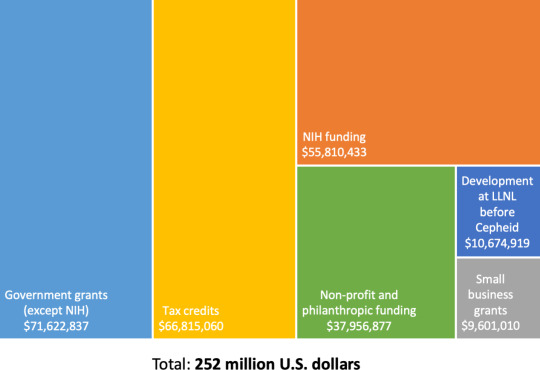
That’s the money–over $250,000,000 of it–that came from taxpayers (mostly in the U.S. and Europe) to fund the creation of the GeneXpert Machine. And yet, this tech largely funded by the public is controlled entirely by private enterprise. I’m troubled by that model of value allocation, even if I still believe that private money and private enterprise have important roles to play in fueling innovation. But taking a quarter billion dollars of public money and then claiming total ownership over a technology, and using that ownership to deny the technology to the world’s poorest people, seems like a deeply flawed system of resource distribution to me.
I’ll see you on Thursday. I’m nervous and excited.
DFTBA,
John
#tuberculosis#it's so funny how this became my job#not like my paying job but the one i do and think about all the time#like of all things#it was this#this is my hobby#anyway#beats jkr's horrible fucking hobby anyday
846 notes
·
View notes
Text
The Lincolnshire petition named six bishops, including Thomas Cranmer, archbishop of Canterbury, whose orthodoxy was suspect. The Lincoln articles sent south from the first Doncaster meeting requested the punishment of subvertors of the laws of God and the realm and specifically named Cranmer, Cromwell, Audeley, and Hugh Latimer, Bishop of Worcester. The Pontefract articles, again drawing back from some of the Pilgrims' earlier and wilder demands, merely sought the punishment of heretics, whether bishops or lay persons.
The Pilgrimage of Grace and the Politics of the 1530s (2001), Richard Hoyle
#herein lies the fly in the ointment of the narrative as popularized by mantel and mackay#cromwell decided anne was dispensable bcus she was unpopular ~#a) bcus she threatened his own...what. nonexistent popularity?#and also b) an underwriting that this was the origin of much of chapuys' and her other adversaries' views of her that obviously cromwell#didn't share... (namely that she was a heretic)#also c) as far as mantel. sort of the suggestion in concert with weir that anne does not deserve our admiration bcus she was 'hated in her#own time'#but cromwell does. but wolsey does. hmmm whomsoever can tell the difference.....#pilgrimage of grace#rw hoyle#and mackay it's more a vibe. but. distinct impression from her works that cromwell is worthy of our respect for his genius#but anne is not bcus she lacked political skill (as she argues)#i also see a parallel between dudley + empson and vox populi vox dei#except in this case their henry's men / bishops not his father's so he responds rather differently
1 note
·
View note
Text
Thoughts on "Escape from Camazotz"
Oppressive Suburbia, Conformity, and Season 5 Themes

I've long thought that a major focus of Season 5 will be the contrast between the families of The Wheelers and The Byers, and exploring how non-traditional family environments can be freeing vs the oppressive structure of the nuclear family.
In a Wrinkle In Time, Camazotz is a planet controlled by the big bad of the book, the "IT", who forces the citizens into a conformity that resembles American suburbia. All of the houses the same, the citizens the same, doing the same things at the same time without individual identity. Without anything different. Different means a lot of things, but with Stranger Things dropping different in reference to Will's identity and the presumable themes of this season, it will heavily codify as queerness and how it threatens the cisheterosexual family model.
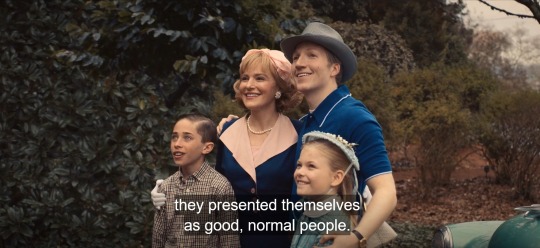
Henry was raised in the 1950s, a decade still revered by conservatives for it's traditional family dynamics that supposedly were the peak of culture and happiness for all. That was all a lie, of course, and Henry knew so as he shows to Nancy and Eleven during his monologue. The second most conservative decade aside from the 1950s in American society is widely considered to be the 1980s.
The Creels will serve in parallel to The Wheelers; the worst example of what they could become and the damage that this type of family could do to a child that is different in any way. Notice how Vecna selectively shows Nancy visions of The Wheelers dying, but not anyone else she may consider family or friends (like Jonathan).
That is; unless they change their ways and come together as a healthy functioning family facing their traumas, The Wheelers will be toast.
Karen has been moved up to a main character role this season. Ted's actor says the father starts to show up more for Holly (hold that) and realizes he wants to act differently. Holly has been recast. Finn has said Mike goes on a much more personal journey this season, and steps up as a leader.
Oh, also: the catalyst for all of this is that Holly goes missing. The contrast will help show how the Byers (including El and Hopper here) were able to pull together and help solve Will's disappearance, versus how the Wheelers as a closed off nuclear family grapple with Holly's vanishing.
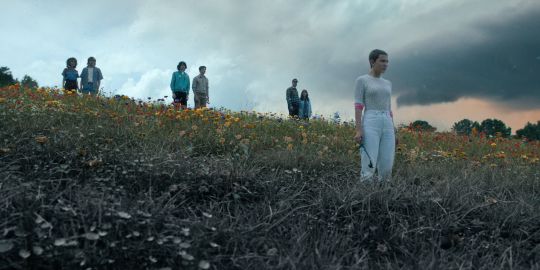
Each of the Byers is in some kind of a non-1950s conformist relationship, but particularly Will (not in one now but we all know he will be). I think El might represent, after she breaks up with Mike, the fear of the unmarried woman being satisfied without a husband. The above shot really emphasizes my point.
I predict that Will will end up coming out to his family rather early on, and we will see all of them immediately accept him with little surprise or push-back. Will is a visible gay man who comes from an open minded non traditional family (divorced, non-married, adoptive) that is willing to have honest conversations.
But this theme will place the most focus on the Wheelers. Mike is the main character of said family and this will particularly focus on his arc, and his acceptance of his queerness in the midst of suburban conformity.
He is not visible, he comes from a Reagan-supporting family who don't communicate with each other. He is not particularly close with his family like Will is. He pushes his feelings down and tries his damn hardest to be normal despite it all. His trauma hasn't really been addressed at all. He is falling back into his usual habits - the one thing he dared to do different (grow his hair long) has gone back to how it was.
It's not all doom and gloom though. This season above all will be a redemption arc of the American nuclear family, how they choose to escape their conformity and learn to be there for each other, thus overpowering Vecna. Not that the Wheelers are going to end this personally.
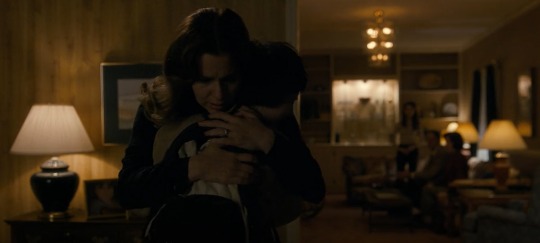
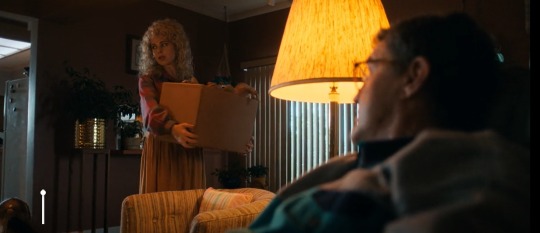
"Great, more hysteria. Just what we need".
"It's the news, now indistinguishable from the tabloids".
#stranger things#mike wheeler#the wheelers#the byers family#byler#will byers#st5 speculation#henry creel#the specificity of this title alone and the themes gives me no doubt that these are all real#i also think this is the episode where byler is canonized and where mike finally escapes conformity#holly wheeler#ted wheeler#karen wheeler#i didnt really mention nancy at all sorry girl#if youre reading this PLEASE search up my username on youtube you will find it SO RELEVANT
278 notes
·
View notes
Text
i said i was going to arrange a list of my favorite articles/criticism about shakespeare, so here’s my first little roundup! obligatory disclaimer that i don’t necessarily agree with or endorse every single point of view in each word of these articles, but they scratch my brain. will add to this list as i continue reading, and feel free to add your own favorites in the reblogs! :]
essays
Is Shakespeare For Everyone? by Austin Tichenor (a basic examination of that question)
Interrogating the Shakespeare System by Madeline Sayet (counterpoint/parallel to the above; on Shakespeare’s place in, and status as, imperialism)
Shakespeare in the Bush by Laura Bohannan (also a good parallel to the above; on whether Shakespeare is really culturally “universal”)
The Unified Theory of Ophelia: On Women, Writing, and Mental Illness ("I was trying to make sense of the different ways men and women related to Ophelia. Women seemed to invoke her like a patron saint; men seemed mostly interested in fetishizing her flowery, waterlogged corpse.”)
Hamlet Is a Suicide Text—It’s Time to Teach It Like One (on teaching shakespeare plays about suicide to high schoolers)
Commuting With Shylock by Dara Horn (on listening to MoV with a ten-year-old son, as modern jewish people, to look at that eternal question of Is This Play Antisemitic?)
All That Glisters is Not Gold (NPR episode, on whether it’s possible to perform othello, taming of the shrew, & merchant to do good instead of harm)
academic articles
the Norton Shakespeare’s intro to the Merchant of Venice (apologies about the highlights here; they are not mine; i scanned this from my rented copy)
the Norton Shakespeare’s intro to Henry the Fourth part 1 (and apologies for the angled page scans on this one; see above)
Richard II: A Modern Perspective by Harry Berger Jr (this is the article that made me understand richard ii)
Hamlet’s Older Brother (“Hamlet and Prince Hal are in the same situation, the distinction resting roughly on the difference between the problem of killing a king and the problem of becoming one. ... Hamlet is literature’s Mona Lisa, and Hal is the preliminary study for it.”)
Egyptian Queens and Male Reviewers: Sexist Attitudes in Antony & Cleopatra Criticism (about more than just reviewers; my favorite deconstruction of shakespeare’s cleopatra in general)
Strange Flesh: Antony and Cleopatra and the Story of the Dissolving Warrior (“If Troilus and Cressida is [Shakespeare’s] vision of a world in which masculinity must be enacted in order to exist, Antony and Cleopatra is his vision of a world in which masculinity not only must be enacted, but simply cannot be enacted, his vision of a world in which this particular performance has broken down.”)
misc
Elegy of Fortinbras by Zbigniew Herbert (poem that makes me fucking insane)
Dirtbag Henry IV (what it sounds like.)
Cleopatra and Antony by Linda Bamber (what if a&c... was good.)
#essays/academic articles is sort of a false dichotomy but i wanted to separate these into More Casual versus More Academic. so.#misc category exists because. i like those two things so much. not at all for the same reasons#max.txt#misc#hamlet#merchant of venice#henry iv#richard ii#antony and cleopatra#there we are.
2K notes
·
View notes